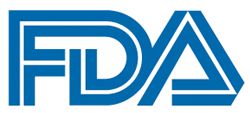Glasdegib Granted FDA Approval for AML
Glasdegib (Daurismo) has been granted FDA approval for combination use with low-dose cytarabine for the treatment of patients with newly-diagnosed acute myeloid leukemia who are aged 75 years or older or who are ineligible for intensive chemotherapy.

Glasdegib (Daurismo) has been granted FDA approval for combination use with low-dose cytarabine (LDAC) for the treatment of patients with newly-diagnosed acute myeloid leukemia (AML) who are aged 75 years or older or who are ineligible for intensive chemotherapy.
The FDA's decision was based on findings from the phase II BRIGHT 1003 trial. Results from the trial showed the addition of the hedgehog pathway inhibitor glasdegib to LDAC reduced the risk of death by 54% compared with LDAC alone. The median overall survival was 8.3 months (95% CI, 4.4-12.2) versus 4.3 months (95% CI, 1.9-5.7), respectively (HR, 0.46; 95% CI, 0.30-0.71; one-sided P-value = .0002).
“The randomized phase II study, which formed the basis for today’s approval, included patients with cardiac disease or mild to moderate kidney disease, who are often excluded from clinical trials,” Jorge Cortes, MD, deputy chair and professor of medicine in the Department of Leukemia, University of Texas, MD Anderson Cancer Center, said in a statement.
“In the trial, Daurismo plus low-dose chemotherapy reduced the risk of death during the study period by 54% compared to chemotherapy alone. This provides a much-needed treatment for those patients for whom intensive chemotherapy is not an option,” added Cortes.
A total of 115 patients with newly diagnosed AML were included in the trial. Patients were randomized in a 2:1 ratio to receive glasdegib plus LDAC (n = 77) or LDAC alone (n = 38). In the glasdegib arm, the median age was 77 years (range, 64-92), 51% of patients had secondary AML, 46% of patients had an ECOG performance status of 0-1, and 53% of patients had an ECOG performance status of 2. Sixty-two percent of patients had good/intermediate cytogenetic risk status and 38% had poor risk status. Fourteen percent of patients had previously received a hypomethylating agent.
The complete response rate was 18.2% with the glasdegib combination compared with 2.6% with LDAC alone.
Adverse events (AEs) across all grades occurring in ≥20% of patients in the first 90 days of therapy in the glasdegib/LDAC arm versus the LDAC alone group included anemia (43% vs 42%), fatigue (36% vs 32%), hemorrhage (36% vs 42%), febrile neutropenia (31% vs 22%), musculoskeletal pain (30% vs 17%), nausea (29% vs 12%), edema (30% vs 20%), thrombocytopenia (30% vs 27%), dyspnea (23% vs 24%), decreased appetite (21% vs 7%), dysgeusia (21% vs 2%), mucositis (21% vs 12%), constipation (20% vs 12%), and rash (20% vs 7%).
Seventy-nine percent of patients in the glasdegib arm experienced serious AEs. Serious AEs occurring in ≥5% of patients treated with glasdegib plus LDAC included febrile neutropenia (29%), pneumonia (23%), hemorrhage (12%), anemia (7%) and sepsis (7%). The FDA label for glasdegib include a boxed warning for embryo-fetal toxicity.
“Intensive chemotherapy is usually used to control AML, but many adults with AML are unable to have intensive chemotherapy because of its toxicities. Today’s approval gives healthcare providers another tool to use in the treatment of AML patients with various, unique needs. Clinical trials showed that overall survival was improved using Daurismo in combination with LDAC compared to LDAC alone for patients who would not tolerate intensive chemotherapy,” Richard Pazdur, MD, director of the FDA’s Oncology Center of Excellence and acting director of the Office of Hematology and Oncology Products in the FDA’s Center for Drug Evaluation and Research, said in a statement.
Reference:
US FDA approves Daurismo™ (glasdegib) for Adult Patients With Newly-Diagnosed Acute Myeloid Leukemia (AML) for Whom Intensive Chemotherapy Is Not an Option. Pfizer. Published online November 21, 2018. Accessed November 21, 2018. https://on.pfizer.com/2BoLsnr.